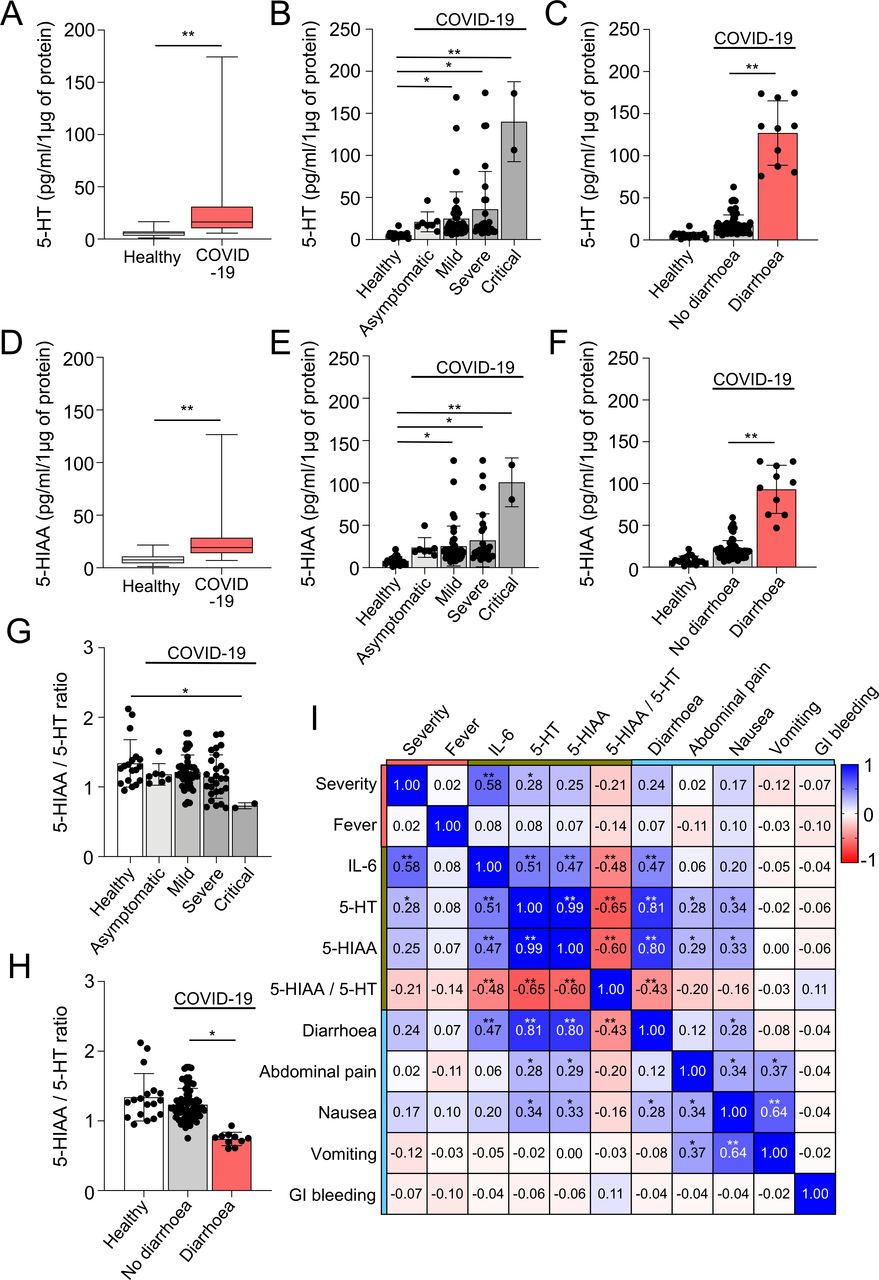Does serotonin deficiency lead to anosmia, ageusia, dysfunctional chemesthesis and increased severity of illness in COVID-19?
Amarnath SenAuthor information Article notes Copyright and License information Disclaimer
This article has been cited by other articles in PMC.
Go to:
Abstract
Different mechanisms forwarded to understand anosmia and ageusia in coronavirus patients are not adequate to explain reversible anosmia and ageusia, which are resolved quickly. In addition, the reason behind the impaired chemesthetic sensations in some coronavirus patients remains unknown. In the present paper it is proposed that SARS-CoV-2 patients suffer from depletion of tryptophan, as ACE2, a key element in the process of absorption of tryptophan from the food, is significantly reduced in the patients as coronavirus uses ACE2 as the receptor to enter the host cells. The tryptophan depletion leads to a deficit of serotonin (5-HT) in SARS-COV-2 patients because tryptophan is the precursor in the synthesis of 5-HT. Such 5-HT deficiency can explain anosmia, ageusia and dysfunctional chemesthesis in COVID-19, given the fact that 5-HT is an important neuromodulator in the olfactory neurons, taste receptor cells and transient receptor potential channels (TRP channels) involved in chemesthesis. In addition, 5-HT deficiency worsens silent hypoxemia and depresses hypoxic pulmonary vasoconstriction leading to increased severity of the disease. Also, the levels of anti-inflammatory melatonin (synthesized from 5-HT) and nicotinamide adenine dinucleotide (NAD+, produced from niacin whose precursor is the tryptophan) might decrease in coronavirus patients resulting in the aggravation of the disease. Interestingly, selective serotonin reuptake inhibitors (SSRIs) may not be of much help in correcting the 5-HT deficiency in COVID-19 patients, as their efficacy goes down significantly when there is depletion of tryptophan in the system. Hence, tryptophan supplementation may herald a radical change in the treatment of COVID-19 and accordingly, clinical trials (therapeutic / prophylactic) should be conducted on coronavirus patients to find out how tryptophan supplementation (oral or parenteral, the latter in severe cases where there is hardly any absorption of tryptophan from the food) helps in curing, relieving or preventing the olfactory, gustatory and chemesthetic dysfunctions and in lessening the severity of the disease.Full article here: Does serotonin deficiency lead to anosmia, ageusia, dysfunctional chemesthesis and increased severity of illness in COVID-19?


